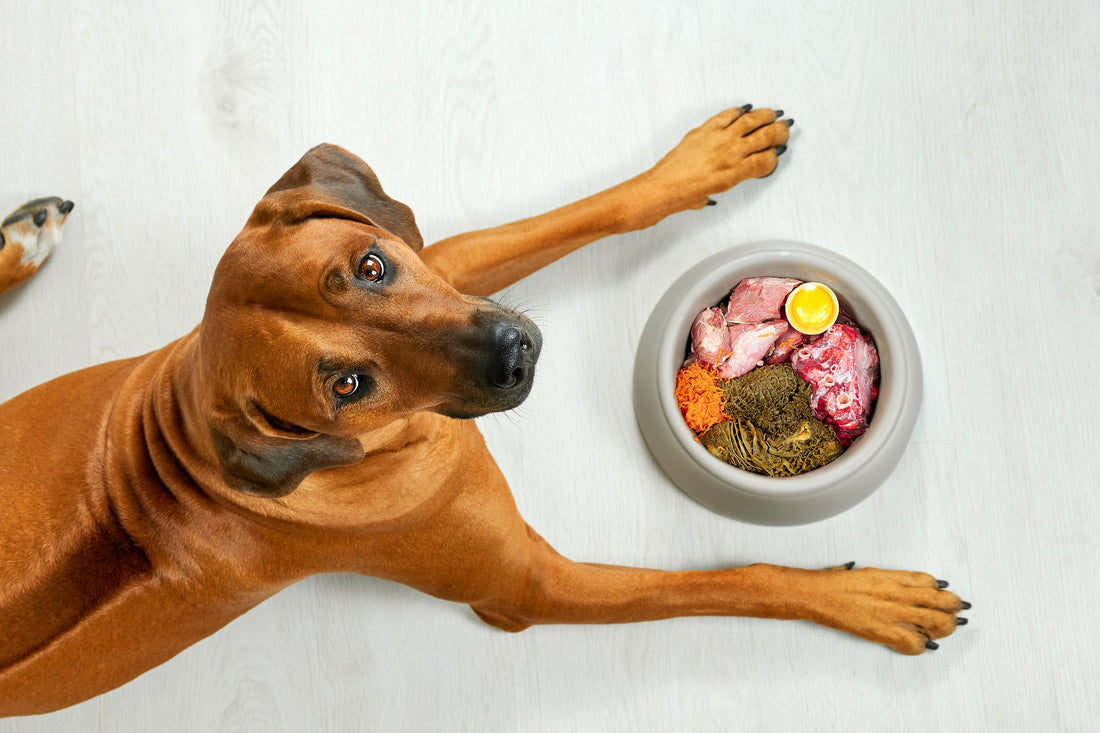
How Much Protein Does Your Dog Actually Need?
Most pet parents have no clue how much protein their dog needs. As a result, they end up feeding their pups too much or too little. It’s nearly impossible to give one universal recommendation, because every dog has different nutritional needs.
Only a vet can figure out the right protein serving for your pup. However, some general guidelines can point you in the right direction! Here are some tips about how much and what types of protein your dog should eat.
Why protein is essential for dogs
Protein should be the main ingredient in every dog’s diet. They depend on protein as their main source of energy to help cells carry out their various functions. A diet high in protein gives dogs the sustained energy needed to run, jump and play for long periods of time. Carbohydrates also provide energy, but a dog’s metabolism is more efficient at using protein to fuel the body.
Many pet parents opt for high-carb commercial foods because they’re less expensive. But by saving money on food, they’re also compromising their pup’s health. Foods with grain fillers provide more carbohydrates than your dog needs. Those extra carbs are stored in the body as fat, which is why high-carb dog foods often lead to obesity. Protein will help your pup maintain a healthy weight because excess protein is filtered out of the body through the kidneys.
Aside from serving as the main energy source, protein is essential for every part of the body. The amino acids in protein help build new muscle and repair damaged tissue. Amino acids are also important building blocks that help the body produces antibodies, hormones and enzymes. And, protein is a key component for skin and hair health, allowing your pup to grow a shiny, luscious coat.
Protein guidelines for the average pup
There’s no one-size-fits-all protein serving that works for every dog. The amount of protein you give your pup will depend on their size, age, breed and medical history. Pet parents should follow a vet’s guidance on how much protein to give their dogs each day. Your vet has all the information they need about your pup to recommend the appropriate daily serving of protein.
However, a few guidelines can help you find an approximate protein serving for your dog. As a general rule, dogs should consume one gram of protein for every pound of body weight. If your dog weighs 30 pounds, then they should eat 30 grams of protein each day. Remember to calculate protein based on the ideal body weight, not their actual body weight. This is especially important for overweight dogs, because excess protein can also contribute to obesity.

Protein should make up a certain percentage of your dog’s daily diet. For the average dog, protein needs to provide 18 to 25 percent of their daily caloric intake. Puppies need even more protein—about 29 percent—to help them grow big and strong. They have a lot more energy than adult dogs, so adequate protein is essential to support their activity.
Some dogs might have to eat more or less protein based on their unique health condition. For example, vets typically recommend less protein than usual for dogs with kidney disease. Since extra protein is processed through the kidneys, consuming less protein can alleviate stress on these vital organs. Always consult your vet before adjusting your dog’s protein intake if they’ve been diagnosed with a chronic disease.
The healthiest sources of protein
Pet parents shouldn’t simply focus on quantity. Dogs need high-quality protein in order to get the most nutritional benefit from their food. Whether your pup’s diet is kibble or home-cooked, incorporate these healthy protein sources into their food.
- Fish: Fish is a great source of protein for dogs because it’s low in fat. It provides their daily protein requirements without the extra calories, which is a must for overweight and obese pups. Pet parents might feed their dogs tuna, cod, salmon or whitefish.
- Poultry: Birds are another form of lean protein. Similar to fish, poultry has a high protein concentration with very little fat. This is also a safer protein source for pups that are allergic to venison or beef. Common options include chicken, duck and turkey.
- Plant-based alternatives: Dogs are designed to get most of their protein from animal sources. However, you can supplement high-quality animal protein with plants that are safe for dogs. Try adding tofu, lentils or chickpeas to your dog’s meals.
There’s no doubt that protein is a crucial part of every dog’s diet. The exact amount of protein is where pet parents start to have questions. A vet can assess your dog’s size, age, breed and health condition to come up with the answer you’re looking for. One thing is certain—protein should be at the top of any ingredients list!


